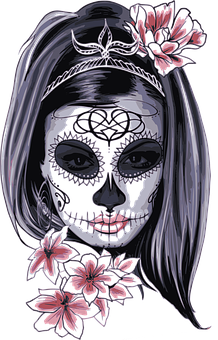Break through writer’s block using these helpful techniques:
1) Break through writer’s block and breathe! Slowly, deeply, it’s all okay and normal and you will be fine, truly. Keep on breathing…you can’t write when you’ve passed out and you’re blue in the face.
2) When you struggle with resistance tell yourself, “I’m not alone.” Because you’re not. Most writers will tell you that all writers have an internal voice that constantly lobbies to stop them from writing. That voice might be saying, “No way you’re going to put your stories into the world because you will get effin’ killed! No one will care, or everyone will hate you, or you will be judged worthless! So stop writing this minute! So step away from the page! And I’ll keep nagging you until you go crazy because I’m the only voice of sanity around here!”
3) That said, if you are determined to write (and I hope you are!) you will want to find worthy supporters. Don’t ask your mom, your sig. other, your best friend to read a story and know what to say. They don’t. If you put them on the spot, they will try to help-or they may actually try to sabotage you because they don’t like that you’re actually doing what they only want to do. Find a teacher, mentor, editor who can give you honest and constructive feedback.
4) When you feel overwhelmed by rules, put the story structure info away—in a drawer, in a trash can, in a virtual trash can—and don’t look at it again. When it causes anxiety it is no longer useful. Shred any piece of paper that tells you there are rules for writing a novel. There are techniques (and you should learn them before you ignore them) but there are no absolute rules.
5) Know that finishing is difficult for your creative self (and mine and everyone’s!). When we near the end of our draft, resistance can swell a bit. Let’s be honest, it can loom as large as a friggin’ tsunami!
6) Know that beginning can be a bear, too. Blank pages may daunt so dive in with some free writes. Try this prompt: “This story is about…” Let your pen move quickly, don’t make your prose pretty, write the forbidden.
Break through writer’s block when fear tries to stop you:
7) Do a 5 minute free write using this prompt: “I am afraid to write this book because…” When you are finished, remind yourself that your fear connects you to your characters. If you write, “I am afraid my story will suck and the world will know I cannot write,” ask yourself, “who in my story is terrified of failure?” If you write, “I’m afraid to write this story because I will die or the people who read it will die,” remind yourself that your deep fears are not logical. But that kind of fear may be connected to the fear of using your voice, of being heard, of having power, and, perhaps, of being judged. At its primal nature, your fear is a doorway into your characters and your story.

8) Harpies, tricksters, and other inner nasties got you down? Write a 5-Minute-Vent using the prompt: “I am allowing my inner gremlins, tricksters, furies and fear-mongers the next five minutes to have their say, here goes…” Now transcribe what comes through until their time limit is up. Then, close the vent respectfully yet firmly. Skim what you’ve read to be sure you hear their message. Let them know you hear them. Remind your inner voices that you will give them another “hearing” tomorrow if they need to speak. Also remind them that you (grown up, integrated, whole you) are writing this book and you are the perfect person to write this book. Remind them that they can relax and take time off because you will be okay and their messages are “early” survival alerts and misguided not to mention a drag on energy that you really want to tap for writing your novel!
9) Remember that perfection is the enemy of creativity. Nothing is perfect. Stick a post-it with “shitty first draft” somewhere on your desk so it’s visible when you write. It worked for Anne Lamott. I add “messy, fast, and hot first draft.” I also like, “shitty, shitty, bang, bang-it-out!”
10) Remain ever-curious about your story and your story world and the characters who inhabit the world. Know that you are the perfect person to write your story. It lives in you and it will live through you.
Break through writer’s block with support from other writers:
11) Let me know how this goes. We writers are often good people and we like helping other writers. We understand the courage it takes to put your deepest work out into the world to share with others.
12) Treat yourself to dark chocolate or your version of dark chocolate. Give yourself a pat-gently-on your heart (I’m serious). Have faith, you are a writer, and you are not alone. Everyone faces challenges. It’s how you deal with them that separates the writers from the wannabes.
13) Commit to a creative life and set your sights on building your body of work. Take risks, be kind to yourself and to others.









